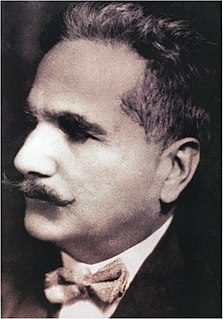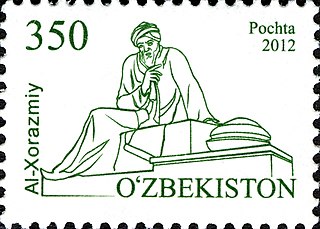 W
WThis is an incomplete list of notable or famous Ahmadi Muslims, members of the Ahmadiyya Muslim Community - a movement within Islam.
 W
WThe Fourteen Infallibles in Twelver Shia Islam are the Islamic prophet Muhammad, his daughter Fatima Zahra, and the Twelve Imams. All are considered to be infallible under the theological concept of Ismah. Accordingly, they have the power to commit sin but by their nature are able to avoid doing so, which is regarded as a miraculous gift from God. The Infallibles are believed to follow only God's desire in their actions because of their supreme righteousness, consciousness, and love for God. They are also regarded as being immune to error in practical matters, in calling people to religion, and in the perception of divine knowledge. Some Twelver Shia believe the Fourteen Infallibles are superior to the rest of creation and to the other major prophets.
 W
WOwing to labour migration in the 1960s and several waves of political refugees since the 1970s, Islam has become a visible religion in Germany. A representative survey estimated that in 2019, there were 5.3–5.6 million Muslims with a migrant background in Germany, in addition to an unknown number of muslims without a migrant background. A previous, similar survey in 2016 estimated a number of 4.4–4.7 million Muslims with a migrant background at that time. An older survey in 2009 estimated a total number of up to 4,3 Muslims in Germany at that time. There are also higher estimates: according to the German Islam Conference, Muslims represented 7% of the population in Germany in 2012.
 W
WThis is a list of notable people who have completely memorized the Quran. A person who has memorized the Quran is called a hafiz, with the female equivalent being hafiza, plural huffaz. This list is not a representative sampling of huffaz.Ali al-Hamadani "very early boyhood" Amir Timur in ''very early boyhood'' he becoming Legendary Hafiz Quran. Sayyid Qutb by the age of 10 Alamgir I. Abdul Rahman Al-Sudais - Imam of Masjid al-Haram, memorized the Qur'an by the age of 12 Abd-al-Aziz ibn Abd-Allah ibn Baaz Omar Khadr, Canadian Guantanamo detainee who memorized the Quran during his captivity Taha Hussein, Egyptian writer and intellectual, memorized the Qur'an at age nine
 W
WThis is a list of Muslim astronauts who have traveled to space. In total, 11 Muslims have been in space.
 W
WAs of 2021, thirteen Nobel Prize laureates have been Muslims, more than half in the 21st century. Seven of the thirteen laureates have been awarded the Nobel Peace Prize, while three have been for the sciences. The recipient of the 1979 Nobel Prize in Physics, Abdus Salam, was a member of the Ahmadi community of Pakistan. Aziz Sancar is the second Turkish Nobel laureate and was awarded the Nobel prize in Chemistry in the field of molecular biology in 2015.
 W
WMuslim philosophers both profess Islam and engage in a style of philosophy situated within the structure of the Arabic language and Islam, though not necessarily concerned with religious issues. The sayings of the companions of Muhammad contained little philosophical discussion. In the eighth century, extensive contact with the Byzantine Empire led to a drive to translate philosophical works of Ancient Greek Philosophy into Arabic.
 W
WLists of Muslim scientists and scholars cover scientists and scholars who were active in the Islamic world before the modern era. They include:List of scientists in medieval Islamic world List of pre-modern Arab scientists and scholars List of pre-modern Iranian scientists and scholars
 W
WThis list article contains names of notable people commonly considered as Sufis or otherwise associated with Sufism.
 W
WSufi saints or Wali played an instrumental role in spreading Islam throughout the world. In the traditional Islamic view, a saint is portrayed as someone "marked by [special] divine favor ... [and] holiness", and who is specifically "chosen by God and endowed with exceptional gifts, such as the ability to work miracles."